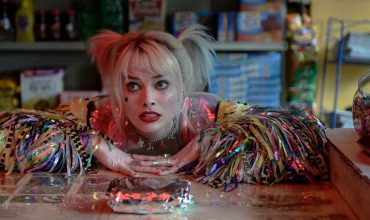The powerful, and true story of the visionary who set out to change the world, and did. The film chronicles Steve Jobs transformation of character from the enthusiasm & self-discovery of his youth, to the personal demons that clouded his vision & finally to the ultimate triumphs of his later life.
With direction from Joshua Michael Stern and a story from Matt Whiteley comes the Steve Jobs biopic ‘jOBS’, starring Ashton Kutcher in the lead role. Interestingly for a film study of such a prolific entrepreneur both Stern and Whiteley comes to ‘jOBS’ as relatively new faces in filmmaking.
Irrespectively however ‘jOBS’ is a reasonably well-constructed film that decides from the onset specifically what era of Steve Jobs’s life that it is going to explore with a clear cut beginning and end point in time within which the film dwells. This is a film about humble beginnings of Apple, the progressive approach taken by Jobs and his colleagues in designing and delivering technological advances in consumer electronics, as well as his personal journey which took him away and back to the company he started.
The film covers many of the milestones you’d expect to see, the original Apple computer of course, the Apple II, and the Macintosh all feature prominently in the film and they serve as an effective tool for the film to depict the ambitions and vision for technology held by Jobs. However for a character driven film we ultimately see a fairly limited view of events.
Jobs personal life is largely left outside the film with just a few scenes scattered throughout the background which cover some of the more pivotal personal moments along the way. It feels as though his personal emotional journey is far too abridged in the film as his character changes in a profound way somewhere between the beginning and end of the film however the audiences witnesses little of this journey.
Taking more of a professional perspective the film depicts Job’s effectively in the workplace however without any real sense of challenge or opposition, his closest colleagues are depicted as constantly being around but with far too little development for the audience to get an understanding of their backgrounds and influences. Steve Wozniak drifts in and out of the film however by the time the credits role the audience has no real understanding of him beyond his interaction with Jobs.
The films feels very safe in terms of its treatment of Jobs in a professional sense, any perceived shortcomings of the Lisa or the Macintosh are glossed over or barely mentioned by the film before events move along. Any responsibility or role in the downturn of Apple’s fortunes is shifted away from Jobs toward others in the company which lessens the emotional resonance of the Jobs led comeback of the company at a later point in time.
To their credit however the filmmakers definitely explore his interpersonal shortcomings in the workplace, as well as his relentless enthusiasm for an uncompromised vision of development and the conflict this leads to.
Kutcher’s performance as Jobs is one of the highlights of the film, emulating the man’s awkward hunch, his style of public speaking and other mannerisms Kutcher is very convincing in the role. The real lost opportunity is that the material doesn’t provide much in the way of Kutcher acting against another dramatic performance. The remaining cast are sound in their respective roles however despite Job’s downward spiral into obsessive work patterns there’s almost no confrontation with either his closest colleagues or biggest opponents which is disappointing.
With a wonderful soundtrack behind it and a strong performance from Kutcher ‘jOBS’ still manages to hit some great emotional beats, it’s an interesting tale albeit one from a fairly limited viewpoint. I found a fair amount to enjoy here, I’m giving it six out of ten stars.
jOBS is in cinemas around Australia on Thursday 29th August 2013.


